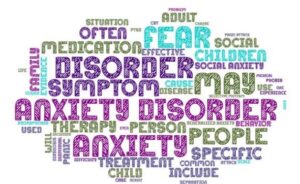
Anxiety has been misunderstood and stigmatized for quite a while. Its tightening grip on one’s thoughts and emotions can have a significant impact on daily life. Which leads to the question: Is anxiety truly a disability? This is a complicated issue, so first, let us look at how anxiety works, the effects it has on people, and how society perceives it.
Anxiety Definitions
First, let’s define anxiety: Anxiety involves excessive fear or apprehension about future events. Anxiety does not manifest itself in the same manner in all people. Physical symptoms of anxiety may range from occasional bouts of worry to full-blown panic attacks with a racing heart rate, trouble breathing, and sweating. While most people experience occasional episodes of anxiety, persistent and overwhelming symptoms can be disruptive to daily life. To classify anxiety as a disability, we consider its impact on the ability to function in daily life. The Americans with Disabilities Act (ADA) defines a disability as a physical or mental impairment that substantially limits one or major life activities. According to this definition, anxiety certainly does qualify as a disability if it impairs a person’s ability to work, study or engage in social situations.
Anxiety Misconceptions

Sadly, anxiety, being a true disability, is often confused by misconceptions and a certain stigma attached to it. People may discard it as nervousness or overreacting. This lack of understanding can lead to invalidation of an individual’s experience and cause them to be reluctant to seek help. Moreover, society tends to put pressure on people to appear “normal” which may prevent people from disclosing their struggles with anxiety.
A major misconception is that individuals with anxiety are merely attention-seeking or overly dramatic. This harmful judgment undermines the legitimacy of these experiences and disregards the true distress that people with anxiety may face. In reality, anxiety disorders are recognized as mental health conditions that require understanding, compassion, support, and proper treatment.
Another misconception about anxiety is that it is a personality trait or character flaw that with enough willpower, can be overcome. While resilience and coping strategies can play a crucial role in managing anxiety, they are not always sufficient for individuals with severe and unwavering symptoms. Professional intervention, including therapy and medication, may be necessary to help eliminate distress and improve functioning.
Another huge factor to analyze is the combination of anxiety and other factors such as race, gender, and socioeconomic status. These factors may complicate its classification as a disability. Marginalized communities may face additional barriers in obtaining mental health resources and support, increasing the impact of anxiety on their lives.
It’s important to know that acknowledging anxiety as a disability does not diminish the resilience or capabilities of individuals who experience it. Recognizing anxiety as a disability highlights the need for greater awareness, acceptance, and accommodations in different settings, such as schools, public spaces, and workplaces.
Anxiety and Social Security Disability Benefits
Misconceptions, as well as societal stigma surrounding anxiety, often minimize the truth about anxiety. If anxiety significantly impairs an individual’s ability to carry out major life activities, their anxiety experience may help them qualify for Social Security Disability (SSD) benefits. It’s imperative to remember that every person’s experience with anxiety is different and will be weighed independently of other situations by the Social Security Administration (SSA). Parmele Law Firm has helped over 55,000 people obtain the SSD benefits they rightly deserve. If you suffer from anxiety to the point where it is affecting your ability to function throughout the day, contact us today to schedule a no-cost consultation: 866-889-2570.
As society becomes more understanding, supportive, and creates readily accessible resources for those with anxiety, we can create a more inclusive environment where individuals with anxiety can thrive and give back to their community.
Reminder: if you need help or just someone to talk to, the Suicide and Crisis Lifeline is always available. Confidential and free. Simply dial 988.

Parmele Law Firm. Guiding you with integrity, competency, and experience.
